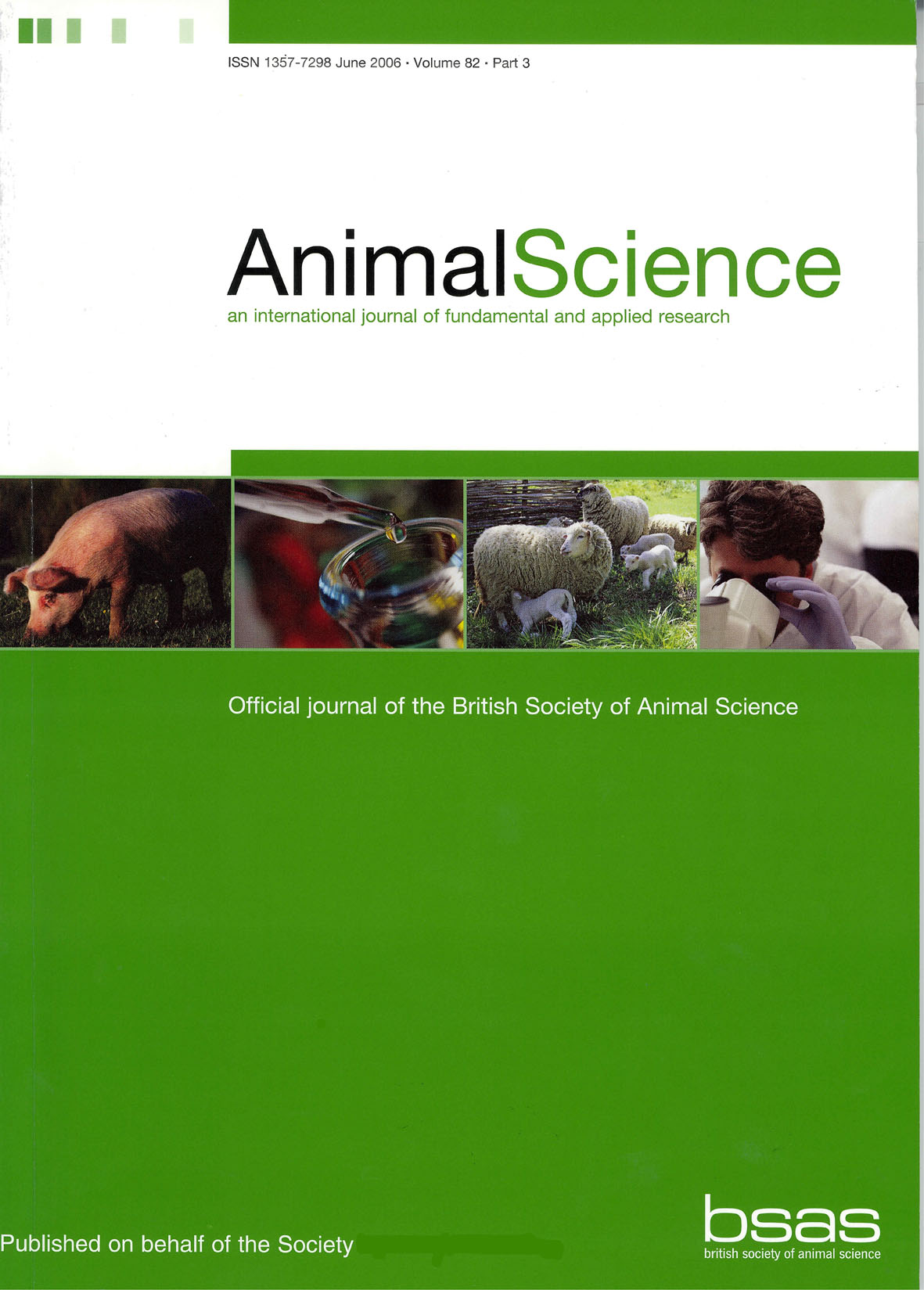Article contents
Management factors affecting activity and aggression in dynamic group housing systems with electronic sow feeding: a field trial
Published online by Cambridge University Press: 18 August 2016
Abstract
A series of 24-h video studies on four commercial Danish pig herds investigated the behaviour of pregnant sows kept in dynamic groups (72 to 200 sows) with electronic sow feeding (ESF). The herds mainly differed with respect to provision of a layer of unchopped straw as bedding material, the frequency of introduction/removal of animals, space allowance in the lying area, group size and number of feeding stations, and starting times for the feeding cycle. All herds had one feeding cycle per 24 h. Six 24-h video recordings in the most settled period with respect to rank relationships (2 to 12 days after the last introduction) were collected from each herd and analysed according to activity and aggressive interactions. In two of the four herds recordings were collected in two separate periods with different starting times for the feeding cycle. In all herds peaks of activity in the morning and in the afternoon were evident. Furthermore, the diurnal variation was overlaid by an increase in activity at the start of the feeding cycle. The activity and aggression in the feeding area as well as the duration per sow of the period with high feeder occupation were lowest in herds where a layer of straw bedding was provided. Changing feeding start from day time to night time was accompanied by a reduced feeder occupation in the period following start of the feeding cycle. However, in herd 1 (characterized by no litter, high stocking density and high frequency of grouping) the level of aggression was reduced, whereas it was increased in herd 2 (characterized by straw in lying area, low stocking density, low frequency of regrouping). Number of regroupings and space allowance apparently had no obvious effects on the average frequency of aggression or the aggression per sow at risk in periods between introduction of new animals, but space allowance may have improved social function by weakening the association between activity and aggression. Due to the small number of herds included the present results were descriptive rather than conclusive. However, the study supports the suggestions that provision of unchopped straw as bedding material and starting the feeding cycle in the evening for overnight feeding may improve behaviour in dynamic group housing systems with ESF. However, the benefits of starting the feeding cycle in the evening may depend on low disturbance in daytime from other management procedures.
- Type
- Research Article
- Information
- Copyright
- Copyright © British Society of Animal Science 2000
References
- 32
- Cited by


